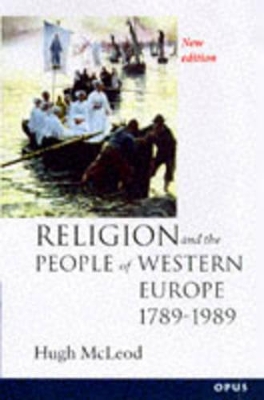OPUS
1 total work
From the end of the eighteenth century, throughout western Europe, the official clergy, champions of privilege and tradition, were challenged by religious dissenters and minorities. Chapel confronted church in Britain and Scandinavia; Catholics struggled against Protestants in Germany and Ireland. The war between anti-clerical and Catholic in France and Spain reached its climax in the Spanish Bloodbath of the 1930s.
This book clearly maps out these polarizations and analyses the impact on religion of socialism, capitalism and the growth of cities. It examines the contrasts between the religion of the middle and working classes and between men and women. It discusses the appeal of movements like Methodism, Secularism, and Ultramontane Catholicism, and considers the crisis faced by the churches in many countries in the 1960s.
A new concluding chapter examines the role of religion up to 1990, and how it has been affected by modern changes in society and beliefs.
This book clearly maps out these polarizations and analyses the impact on religion of socialism, capitalism and the growth of cities. It examines the contrasts between the religion of the middle and working classes and between men and women. It discusses the appeal of movements like Methodism, Secularism, and Ultramontane Catholicism, and considers the crisis faced by the churches in many countries in the 1960s.
A new concluding chapter examines the role of religion up to 1990, and how it has been affected by modern changes in society and beliefs.
